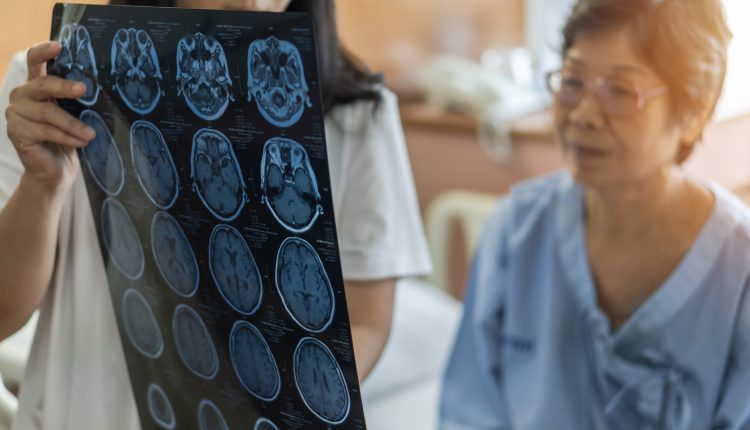
Early Diagnose Alzheimer’s & Dementia
Doctor J. Rusnak once said: “Release in your mind who your loved one used to be and accept who they are today.” He spoke of Alzheimer’s patients and the importance of acceptance in such circumstances. Perhaps acceptance should begin right after the dementia diagnosis has been made. An early diagnosis of Alzheimer’s may provide long-awaited answers for failing memory, communication problems and behavioural changes. An early diagnose of Alzheimer’s may provide long-awaited answers for failing memory, communication problems and behavioural changes.
Contents
Alzheimer’s & Dementia Differences
It is important to note that dementia is a general term, whereas Alzheimer’s is a specific brain disease. As a result, it manifests in symptoms of dementia that gradually get worse over time. To go over the diagnosis and treatment process, we first need to understand the differences between dementia and Alzheimer’s.
As Alzheimer’s disease affects the brain region associated with learning, early symptoms may include memory, thinking, and reasoning changes. The onset of Alzheimer’s disease is most common after age 65, although it can also occur in younger people.
Why Is It Critical to Diagnose the Type of Dementia Accurately?
It is crucial for families, caregivers, and care workers to diagnose the type of dementia a person has to provide the proper care and support. A guide to understanding and communicating with dementia patients will help you with that goal.
The Most Common Symptoms of Dementia
What helps with an early dementia diagnosis is knowing and keeping track of the symptoms of a disease. Not all of these symptoms are definite indicators of dementia or Alzheimer’s. That’s why your priority should be consulting a doctor or health expert.

Memory Loss as Early Onset Alzheimer’s Symptoms
Alzheimer’s disease shows signs of forgetting recently learned information, especially in the early stages. Other symptoms may include forgetting important dates or events, asking the same questions repeatedly, and increasingly needing help from family members or memory aids (e.g., notes or electronic devices).
The Typical Course of Events: Patients tend to forget names or appointments but may recall them later.
Dementia Diagnosis: Difficulty Solving Problems
Difficulty solving problems can be a symptom of the early stages of dementia.
Dementia patients may have difficulty following a plan or working with numbers. It may be difficult for them to follow a familiar recipe or track monthly expenses. They may find it challenging to concentrate and take much longer to complete tasks.
The typical course of events: Patients may make occasional mistakes when managing finances or household bills.
Difficulty Completing Familiar Tasks
Alzheimer’s patients often have difficulty performing basic tasks daily. It may be difficult for them to drive to a familiar location, organize a grocery list, or sometimes remember the rules of a favourite game.
The typical course of events: Alzheimer’s patients may occasionally need assistance with microwave settings or recording a TV show.
Confusion with Time or Place
Time, seasons, and dates can confuse people with Alzheimer’s. If something doesn’t happen immediately, they may not understand it. Occasionally, they may forget where they are or how they got there.
The typical course of events: Patients may experience confusion over the day of the week but figure it out later.
Visual and Spatial Problems
Alzheimer’s patients sometimes have vision problems. It may make it difficult to balance or read. It may also be difficult for them to determine colour and contrast, making driving challenging.
The typical course of events: Cataract-related vision changes.
New Problems with Words in Speaking or Writing
Alzheimer’s patients may have difficulty following or joining a conversation. Sometimes, they may stop in the middle of a conversation and not know how to continue or repeat themselves. Their vocabulary may become limited, or they may misname familiar objects.
The typical course of events: It is sometimes challenging to find the right word.
Misplacing Things and Losing the Ability to Retrace Steps
It is common for people with Alzheimer’s disease to put things in strange places. When they lose something, they may not be able to go back over their steps to find them. The person may accuse others of stealing, especially as the disease progresses.
The typical course of events: Patients may lose things and have to retrace steps to locate them.
Decreased or Poor Judgment
The ability to make decisions or to judge may be affected. Their judgment may be poor when dealing with money, or they may ignore grooming.
The typical course of events: There may be mistakes once in a while, like neglecting to change the car oil.
Withdrawal from Work or Social Activities
A person living with Alzheimer’s disease may experience changes in the ability to hold or follow a conversation. As a result, the person may withdraw from hobbies, social activities, and other engagements. There is a possibility that they will have difficulty keeping up with their favourite team or activity.
The typical course of events: It’s not uncommon for patients to feel uninterested in social or family obligations.
Changes in Mood and Personality
Alzheimer’s patients may experience changes in mood and personality. Symptoms include confusion, suspicion, depression, anxiety, or fear. They may become easily irritated when out of their comfort zone, like at home or with friends.
The typical course of events: They tend to develop specific ways of doing things and become irritable when their routine changes.

Early Diagnose Alzheimer’s and Dementia: The Procedures
It is necessary to detect the above signs of mental decline for a dementia diagnosis. A healthcare provider can perform a few tests, such as cognitive tests for Alzheimer’s to diagnose the early onset of Alzheimer’s symptoms.
Healthcare providers first assess memory, problem-solving, and other mental skills after asking about the individual’s health history. Additionally, they may test the subject’s blood, urine, and spinal fluid. Also, the person may need to undergo specific imaging tests, such as CT and MRI scans. The provider can use these to examine brain tissue more closely and determine how much damage there is.
The Importance of Early Diagnose Dementia: Early Stages of Dementia Treatments
Dementia is a profoundly life-changing condition. Therefore reactions to a diagnosis can range from shock to anger and despair. But for some people, it can also come as a relief.
People can plan ahead while they are still able to make important decisions about their care and support, financial and legal needs. Early Diagnose Dementia can also provide practical advice, guidance, and information for patients and their families.
Dementia Medications

There is no cure for dementia, but there are ways to manage the symptoms.
Medications
The following medications help to improve dementia symptoms temporarily.
- Cholinesterase inhibitors. Donepezil (Aricept), rivastigmine (Exelon) and galantamine (Razadyne) work by increasing levels of a chemical messenger involved in memory and judgment.
- Memantine. Memantine (Namenda) regulates glutamate’s activity, which plays a vital role in memory and learning.
Final Words
Whether you, your parents, your partner, or another loved one has been diagnosed with dementia, you can take steps to lessen the blow. Although dementia has no cure, you can slow down the progression of the disease and improve your quality of life by taking specific steps.
We attributed my sister’s forgetfulness and confusion to stress or just getting older. But over time, it became clear that something more serious was happening. Getting an early diagnosis was crucial for her and our family. It allowed us to start planning for her future care and treatment and to make the most of the time we had left with her.
I hope this article encourages more people to seek early diagnosis and treatment for themselves or their loved ones. It’s not always easy to face the possibility of dementia or Alzheimer’s, but the sooner we know, the better we can prepare and support each other.